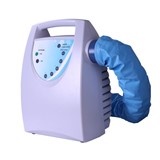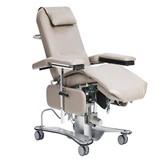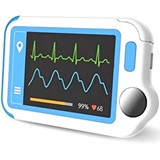Clinicians may perceive breaking bad news as one of the most stressful elements of their clinical responsibilities.
Patients require compassion when receiving difficult news about their condition. The perceptions of patients at the time of the update can influence their psychological adjustment to diagnosis and treatment in the longer term.
How can practitioners handle this critical step with the right combination of compassion and professionalism?
Consider the physical environment
A 2004 review published in the Lancet identified patient preferences for privacy and not being rushed when communicating with a doctor about these sensitive matters. When delivering an unfavourable diagnosis, doctors may consider providing a comfortable, familiar environment and inviting an appropriate partner, relative or friend.
The physical environment can also protect patient confidentiality, preventing conversations from being overheard by third parties.
Read more information on Health Information and the Privacy Act 1988
Deliver the message with clarity
Keep information simple, honest and repeat key messages. Information regarding diagnosis should be clear and up to date, and may include management and prognosis.
Ensure your patient has absorbed and fully understood the information they are hearing, while gauging how much more information your patient wishes to hear at this difficult time. Information given in small amounts can ease the pace and allow you to successfully monitor patient understanding.
Proactively improve communication skills
A recent study found the ability of medical students to communicate effectively was enhanced when they learned to address their personal and professional difficulties when breaking bad news. Learning effective communication skills can enhance doctors' self-awareness and ensure major misunderstandings are avoided.
Specialised programs in undergraduate, postgraduate and continuing medical education can provide opportunities for further skill development.
Take a patient-centred approach

A patient-centred approach that personalises the process has been endorsed by doctors in guidelines and protocols. Be sensitive to your patient, consider body language and take time to listen or answer questions without judgement.
Empathy is considered essential to effective communication, and can be an enduring skill once acquired. It may be as simple as your patient's preference for both the doctor and patient to be seated when hearing bad news.
Read about the SPIKES protocol for delivering bad news and the Australian consensus guidelines for clinicians.
Don't forget meaningful follow-up
Patient follow-up after the delivery of bad news can enhance the therapeutic relationship for ongoing patient management. Organising further appointments, follow-up telephone calls or identifying a support system for your patient when they return home, can play a meaningful role in the process of acceptance.



-160x160-state_article-rel-cat.png)
-160x160-state_article-rel-cat.png)







